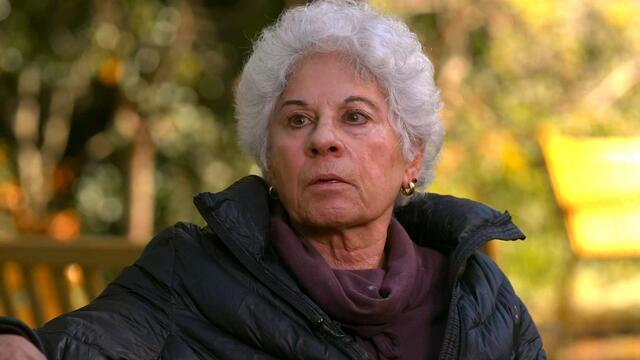Rochelle Gibbons told CBS News that she mourns the loss of her husband, Ian Gibbons, every day.
“For me, he was as near to perfection, as a human could be,” Rochelle told CBS News’ consumer investigative national correspondent Anna Werner.
Ian Gibbons, who was the chief scientist of Theranos, died by suicide in 2013. He was a biochemist with degrees from Cambridge University.
The two had met while studying at the University of California, Berkeley in 1973 and married two years later.
“He was kind. He was honest. He was extremely intelligent,” Rochelle said.
With more than 60 U.S. patents to his credit, she said, Gibbons was hired in 2005 to be the chief scientist at Theranos to work on what the company and founder Elizabeth Holmes promised was revolutionary new blood-testing technology. But Rochelle says early on, her husband indicated there were problems.
“He started talking to me about all these investments, all the money that the company is bringing in. And he told me that he couldn’t imagine why people were giving the company any money because there was no invention, there was nothing there,” Rochelle recalled.
Compounding the problems, she says, was her husband’s description of Holmes as someone who could not be trusted.
“I said, ‘How do you feel about Elizabeth? Do you think she’s telling the truth?’ And he told me, ‘Well, Elizabeth lies about everything.’ That’s exactly what he said,” Rochelle recalled.
At one point, she says, after her husband raised his concerns with his friend and former Theranos board member and Emeritus Professor of Chemical Engineering at Stanford, Channing Robertson, Holmes fired Gibbons. He was rehired a few hours later—but he was demoted. By early 2013, Rochelle said the stress for her husband had become intolerable and he was drinking more and was depressed.
Fearing he would be fired if he told the truth about the company’s technology in an upcoming court deposition, she said he took an overdose of acetaminophen and died 8 days later, at age 67.
“And I think of it every day, I mean, I think of it all the time,” Rochelle said.
She believes that if her husband had not gone to work for Theranos he would be here today.
After Gibbons died, she said she notified Holmes, but she never heard back from her. Rochelle said instead, an office manager contacted her to ask her to return Theranos company property.
Holmes was convicted on four charges of fraud and conspiracy earlier this month for misleading investors. Holmes was acquitted on four other counts. She maintains her innocence.
Rochelle had feared that Holmes would not be convicted at all – but believes the jury made the correct decision to convict her on four counts, each with a possible penalty of 20 years in prison.
She said she gets “a little satisfaction” from Holmes’ conviction.
“Satisfaction in knowing she’s going to suffer because, believe me, I’ve suffered and Ian suffered,” she said. “She has shown no remorse for any of the things she’s done to anyone, nothing.”
CBS News reached out to Holmes’ attorneys for a response but did not hear back. CBS News also reached out to Robertson, but he did not respond to a request for comment.
In 2016, Robertson told Vanity Fair magazine that he recalled Gibbons telling him what Theranos “had accomplished at that time was sufficient to commercialize.”


































